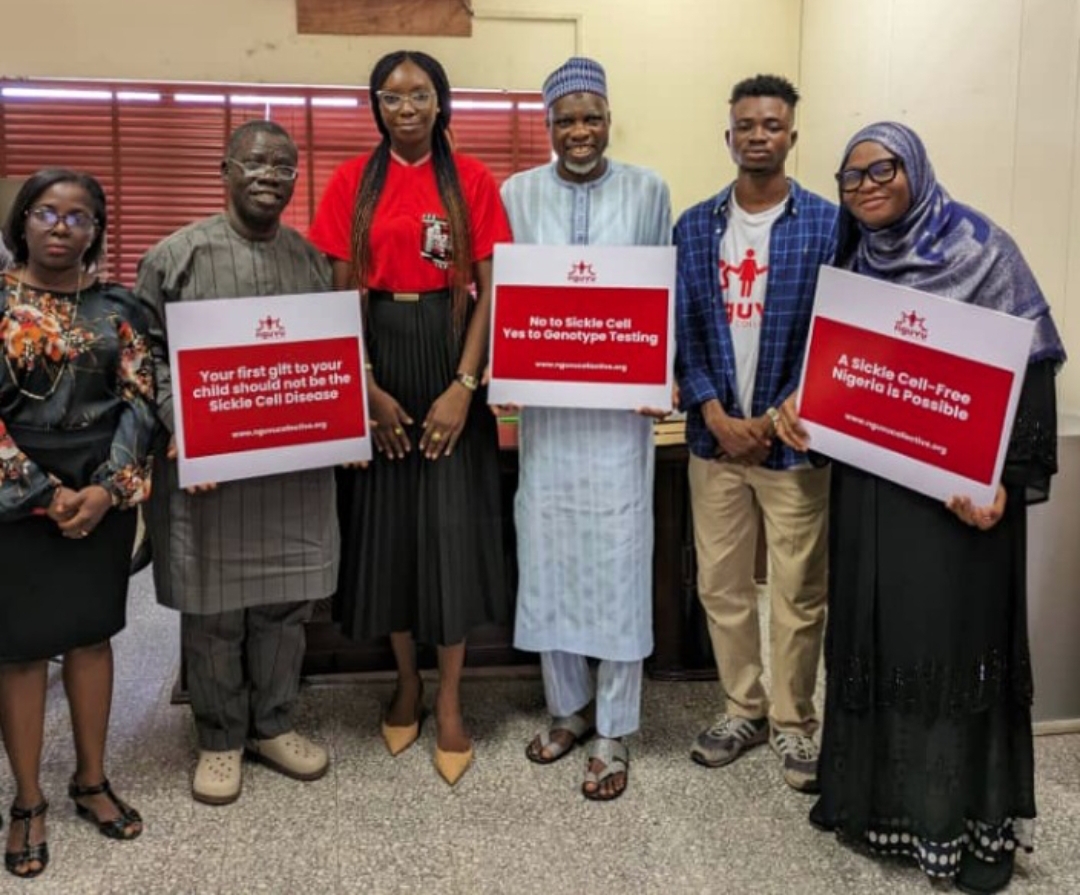By Dare Akogun
The Sickle Cell Foundation Nigeria, in collaboration with the Nguvu Collective, has intensified its campaign for the passage of the Sickle Cell Anaemia (Control and Prevention) Bill in the 10th National Assembly.
The foundation aims to address the rising cases of Sickle Cell Disorder (SCD) in Nigeria, which accounts for nearly half of the estimated 300,000 newborns affected by the disease annually.
Two Change Leaders supported by the Nguvu Collective, Onor Obassi Tawo and Mariya Bagudo, who have both lost loved ones to the disease, have been at the forefront of this campaign.
Although they were unable to attend, their fellow Change Leaders, Jecinta Egbim, Saratu Kassim, and Bode Afurewaju, represented them at a critical meeting with officials from the Federal Ministry of Health’s Non-Communicable Disease Department in Abuja.
Present at the meeting were Dr. Ahmed Mohammed Ozi, Director of Non-Communicable Diseases; Dr. Alayo Sopekan, National Coordinator on Sickle Cell Disease; Bunmi Osundele, and Omolara Raji, Partnership Specialist from Nguvu Collective.
The discussion focused on the urgent need for a National Policy on Sickle Cell Disease to create a comprehensive strategy for combating the disease across the country.
“Sickle cell is a disease of love. The experiences it brings can be deeply painful. To reduce the rate of sickle cell disease in Nigeria, universal health coverage is required, and that cannot be achieved without adequate funding for intervention programs,” remarked Dr. Ozi during the meeting.
Dr. Sopekan emphasized the importance of early identification and intervention, urging more people to utilize the six dedicated sickle cell centres across the country.
He noted that these centres are not only providing essential services but are also involved in ongoing research efforts to improve the quality of life for those living with the disease.
Nguvu Change Leader Jecinta Egbim highlighted the need for a robust national law to ensure access to care for sickle cell warriors and called for increased awareness around voluntary confidential screening in Nigeria.
“We need a robust national law to ensure access to care for sickle cell warriors, and a commitment to create more awareness around voluntary confidential screening in Nigeria,” she said.
Saratu Kassim, another Change Leader, called on the government to make screening free in hospitals after childbirth and to reduce out-of-pocket health management costs through the National Health Insurance Scheme (NHIS).
Ebenezer Wikina, Senior Partnerships Specialist at Nguvu Collective, expressed optimism about the Ministry’s recognition of the collective’s efforts.
He pointed out that four states in Nigeria have already enacted laws that include awareness and testing for sickle cell disease.
“Our change leaders, who have lost their loved ones to the disease and are survivors themselves, stress the urgent need for Nigeria to have a National Policy on Sickle Cell Disease,” he said.
The meeting also explored the provision of resources to support sickle cell treatment and ways in which stakeholders can collaborate with the Ministry to improve health outcomes across Nigeria.
The Change Leaders advocated for national-level public awareness campaigns through newspapers, billboards, radio, and television, alongside other health initiatives like youth-friendly reproductive health programs, fertility care coverage under the NHIS, and access to mental healthcare at primary healthcare centres.
The call for a national policy on SCD is seen as a critical step towards reducing the prevalence of the disease and improving the quality of life for those affected by it in Nigeria.

